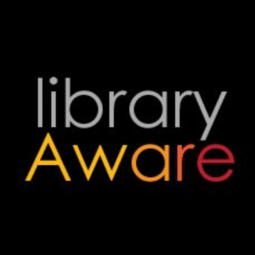National Indigenous History Month
Take some time in June to celebrate the cultures and contributions of First Nations, Inuit, and Métis Indigenous peoples of Canada by reading some of these great titles honouring Indigenous history.
Broken circle : the dark legacy of Indian residential schools
Fontaine, Theodore, 1941- author
2022
"A new commemorative edition of Theodore Fontaine's powerful, groundbreaking memoir of survival and healing after years of residential school abuse. Originally published in 2010, Broken Circle: The Dark Legacy of Indian Residential Schools chronicles the impact of Theodore Fontaine's harrowing experiences at Fort Alexander and Assiniboia Indian Residential Schools, including psychological, emotional, and sexual abuse; disconnection from his language and culture; and the loss of his family and community. Told as remembrances infused with insights gained through his long healing process, Fontaine goes beyond the details of the abuse that he suffered to relate a unique understanding of why most residential school survivors have post-traumatic stress disorders and why succeeding generations of Indigenous children suffer from this dark chapter in history. With a new foreword by Andrew Woolford, professor of sociology and criminology at the University of Manitoba, this commemorative edition will continue to serve as a powerful testament to survival, self-discovery, and healing."-- Provided by publisher.
Call me Indian : from the trauma of residential school to becoming the NHL's first Treaty Indigenous player
Sasakamoose, Fred, 1933- author
2021
Fred Sasakamoose, torn from his home at the age of seven, endured the horrors of residential school for a decade before becoming one of 120 players in the most elite hockey league in the world. When people tell his story, this is usually where they end it. Sasakamoose's story was far from over. He paved a way for youth to find solace and meaning in sports for generations to come. This ground breaking memoir intersects Canadian history and Indigenous politics, and follows his journey to reclaim pride in an identity that had previously been used against him.
Clearing the Plains : disease, politics of starvation and the loss of aboriginal life
Daschuk, James W., (James William), 1961- author
2014
Crosses in the sky : Jean de Brébeuf and the destruction of Huronia
Bourrie, Mark, 1957- author
2024
A biography of Jesuit missionary Jean de Brébeuf and a history of the colonization of Huronia, the home of the Huron-Wendat nation. This is the story of how and why the Jesuits came to "New France," what happened when they arrived, and how these early encounters have shaped settler relationships with Indigenous people to this day. This deeply researched narrative considers not only the missionary's fate, but the ongoing tragedy of his colonial legacy and is an essential addition to - and expansion of - Canadian history.
For king and Kanata : Canadian Indians and the First World War
Winegard, Timothy C. (Timothy Charles), 1977- author
2012
From treaties to reserves : the federal government and Native peoples in territorial Alberta, 1870-1905
Hall, D. J. (David John), 1943- author
2015
An illustrated history of Canada's Native people : I have lived here since the world began
Ray, Arthur J., author
2016
The inconvenient Indian : a curious account of native people in North America
King, Thomas, 1943-
2012
Indigenous continent : the epic contest for North America
Hämäläinen, Pekka, 1967- author
2022
"This nation's history and self-understanding have long depended on the notion of a "colonial America," an epoch that supposedly laid the foundation for the modern United States. In Indigenous Continent, Pekka Hämäläinen overturns the traditional, Eurocentric narrative, demonstrating that, far from being weak and helpless "victims" of European colonialism, Indigenous peoples controlled North America well into the 19th century. From the Iroquois and Pueblos to the Lakotas and Comanches, Native empires frequently decimated white newcomers in battle, forcing them to accept and even adopt Native ways. Even as the white population skyrocketed and colonists' land greed become ever more extravagant, Indigenous peoples flourished due to sophisticated diplomacy and flexible leadership structures. As Hämäläinen ultimately contends, instead of "colonial America" we should speak of an "Indigenous America" that was only slowly and unevenly becoming colonial. In our myth-busting era, this restoration of Native Americans to their rightful place at the very center of American history will be seen as one of the most important correctives yet"-- Provided by publisher.
Indigenous ingenuity : a celebration of traditional North American knowledge
Havrelock, Deidre, author
2023
"Corn. Chocolate. Fishing hooks. Boats that float. Insulated double-walled construction. Recorded history and folklore. Life-saving disinfectant. Forest fire management. Our lives would be unrecognizable without these, and countless other, scientific discoveries and technological inventions from Indigenous North Americans. Spanning topics from transportation to civil engineering, hunting technologies, astronomy, brain surgery, architecture, and agriculture, Indigenous Ingenuity is a wide-ranging STEM offering that answers the call for Indigenous nonfiction by reappropriating hidden history. The book includes fun, simple activities and experiments that kids can do to better understand and enjoy the principles used by Indigenous inventors. Readers of all ages are invited to celebrate traditional North American Indigenous innovation, and to embrace the mindset of reciprocity, environmental responsibility, and the interconnectedness of all life." -- Amazon.com.
Intimate integration : a history of the Sixties Scoop and the colonization of Indigenous kinship
Stevenson, Allyson D., 1976- author.
2020
"Privileging Indigenous voices and experiences, Intimate Integration documents the rise and fall of North American transracial adoption projects, including the Adopt Indian and Métis Project and the Indian Adoption Project. The author argues that the integration of adopted Indian and Métis children mirrored the new direction in post-war Indian policy and welfare services. She illustrates how the removal of Indigenous children from Indigenous families and communities took on increasing political and social urgency, contributing to what we now call the "Sixties Scoop." Intimate Integration utilizes an Indigenous gender analysis to identify the gendered operation of the federal Indian Act and its contribution to Indigenous child removal, over-representation in provincial child welfare systems, and transracial adoption. Specifically, women and children's involuntary enfranchisement through marriage, as laid out in the Indian Act, undermined Indigenous gender and kinship relationships. Making profound contributions to the history of settler-colonialism in Canada, Intimate Integration sheds light on the complex reasons behind persistent social inequalities in child welfare."-- Provided by publisher.
My heroes have always been Indians : a century of great Indigenous Albertans
Voyageur, Cora Jane, 1956- author
2018
A national crime : the Canadian government and the residential school system, 1879 to 1986
Milloy, John Sheridan, author
2017
The Northwest is our mother : the story of Louis Riel's people, the Métis nation
Teillet, Jean, author
2019
On savage shores : how indigenous Americans discovered Europe
Dodds Pennock, Caroline, 1978- author
2023
"A landmark work of narrative history that shatters our previous Eurocentric understanding of the Age of Discovery by telling the story of the Indigenous Americans who journeyed across the Atlantic to Europe after 1492"-- Provided by publisher.
Return of the bison : a story of survival, restoration, and a wilder world
DiSilvestro, Roger L., author.
2023
Return of the Bison is the story of how this symbol of the American West was once almost lost to history and of the continuing journey to bring bison back from the brink. Author and naturalist Roger Di Silvestro explores the complex history of the bison's decimation and how a rising awareness of their possible extinction formed the roots of many modern wildlife conservation approaches. Weaving in natural history and fascinating historical context featuring personalities such as Teddy Roosevelt, George Bird Grinnell, and William T. Hornaday, Di Silvestro traces the decades it took to begin to save the bison, often with little hope and plagued by discouraging setbacks. Di Silvestro explores the key role in the story of America's Indigenous people, whose fate was intertwined with the bison's and whose conservation work is important not only for the animal's recovery but also for their own cultural renewal.
Serpent River resurgence : confronting uranium mining at Elliot Lake
Leddy, Lianne C., author
2022
"Serpent River Resurgence tells the story of how the Serpent River Anishinaabek confronted the persistent forces of settler colonialism and the effects of uranium mining at Elliot Lake, Ontario. Drawing on extensive archival, participant interview, and newspaper sources, Lianne C. Leddy examines the environmental and political power relationships that affected her homeland in the Cold War period. Leddy details the establishment of uranium mining operations at Elliot Lake and the ways in which the lives of the Serpent River Anishinaabek were changed by an influx of settlers in the 1950s and 1960s. Focusing on Indigenous-settler relations, the environmental and health consequences of the uranium industry, and the importance of traditional uses of land and what happens when they are compromised, Serpent River Resurgence explores how settler colonialism and Anishinaabe resistance remained potent forces in Indigenous communities throughout the second half of the twentieth century. While the book emphasizes the persistence of settler colonial forces and policies in Canada, it is also optimistic in its focus on the power of Indigenous voices and community mobilization in mounting successful resistance and reclamation of the land."-- Provided by publisher.
Stories of Métis women : tales my Kookum told me
Oster, Bailey, author, editor
2021
"This book is a collection of stories about culture, history, and nationhood as told by Métis women. In this era of reconciliation, Stories of Métis Women explains the story of the Métis Nation from a their own perspective. The UN has declared this "The Decade of Indigenous Languages" and Stories of Métis Women is one of the few books available in English and Michif, which is an endangered language."
This place : 150 years retold
2019
Explore the past 150 years through the eyes of Indigenous creators in this groundbreaking graphic novel anthology. Beautifully illustrated, these stories are an emotional and enlightening journey through Indigenous wonderworks, psychic battles, and time travel. See how Indigenous peoples have survived a post-apocalyptic world since Contact.



















